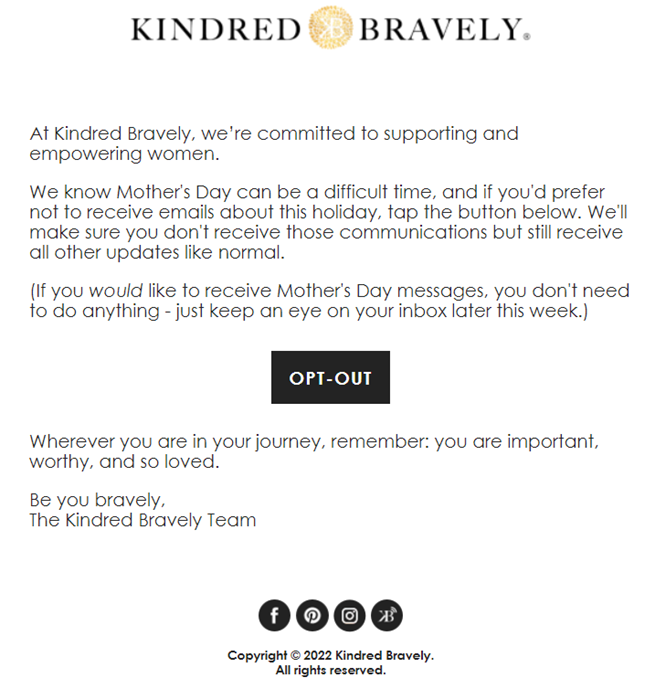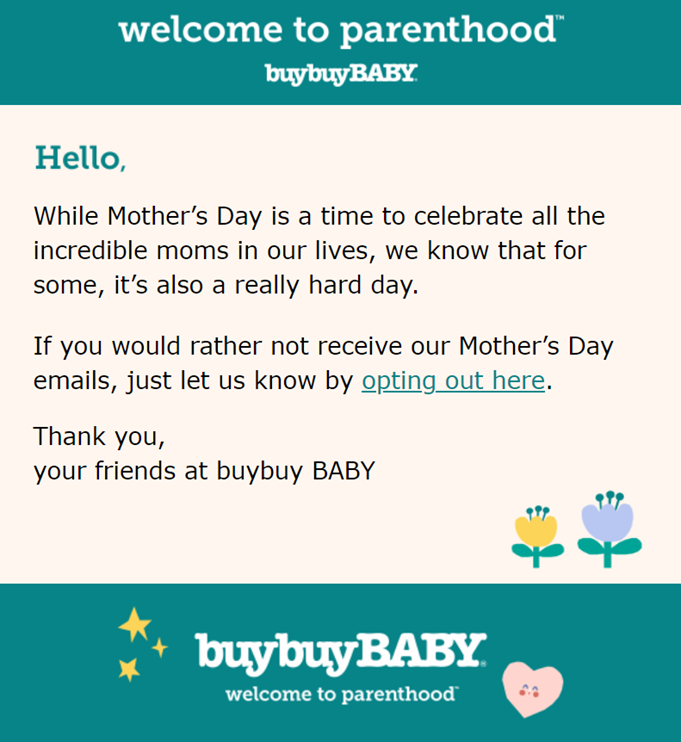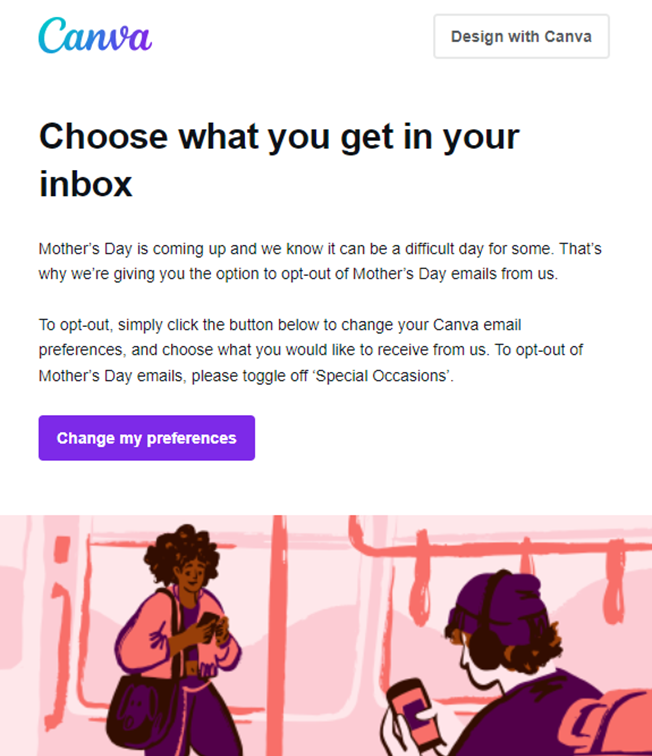Mother’s Day is right around the bend! But you likely already knew this – the seemingly endless promotion emails flooding your inbox over the last month won’t let you forget.
I will admit that we public relations and marketing professionals love a good holiday to add timeliness to our campaigns. Whether they are traditional ones like Christmas or lesser-known, unofficial holidays like National Chocolate Chip Day (coming up this month on May 15!), celebrations provide brands with a different angle to draw attention to their tried and true messaging.
But what happens when an attempt to connect with audiences in a new way leads to unintended negative feelings? This year, I’ve seen several brands take extra care and consideration leading up to Mother’s Day in a manner I’ve not seen before.
In the span of one week, I received marketing messages from multiple companies giving subscribers a heads up about upcoming Mother’s Day messages. Each had a subject line such as “Don’t want to receive Mother’s Day emails?” and provided instructions for opting out. These messages caught my attention as a new mom to a four-month-old baby girl. I’m ecstatic for my first Mother’s Day! Send all the Mother’s Day promo my way – I’m an easy target who will click your link and soon have a cart full of “mommy and me” matching outfits. But what is a happy occasion for me is not for everyone. It was nice to see brands from various industries – even those not exclusively associated with motherhood – recognize this.
For example, Kindred Bravely, which sells maternity and breastfeeding-friendly clothing, and buybuy BABY both have email lists that may include people who were expecting a baby but no longer are due to tragic circumstances. But I also received this type of email from graphic design website Canva, which doesn’t have a specific parenting audience.
There are a number of reasons why Mother’s Day may be a difficult holiday for some. This is true for many other celebrations as well. While it’s nearly impossible to consider every situation someone could be in, there is no downside to thinking through whether our message will be received as it was intended.
Of course, receiving all these opt-out emails can bring up difficult feelings of their own. Perhaps we should give people in our database more options to tailor the content they don’t want in their inboxes when they sign up for our lists. In email marketing, metrics are everything. It may feel counterintuitive to give your database the chance to opt out of certain messages. But it’s important to remember the individuals behind the impressions. While this could mean that there are fewer eyeballs on your holiday campaign, the actions you take can build good will over time.




